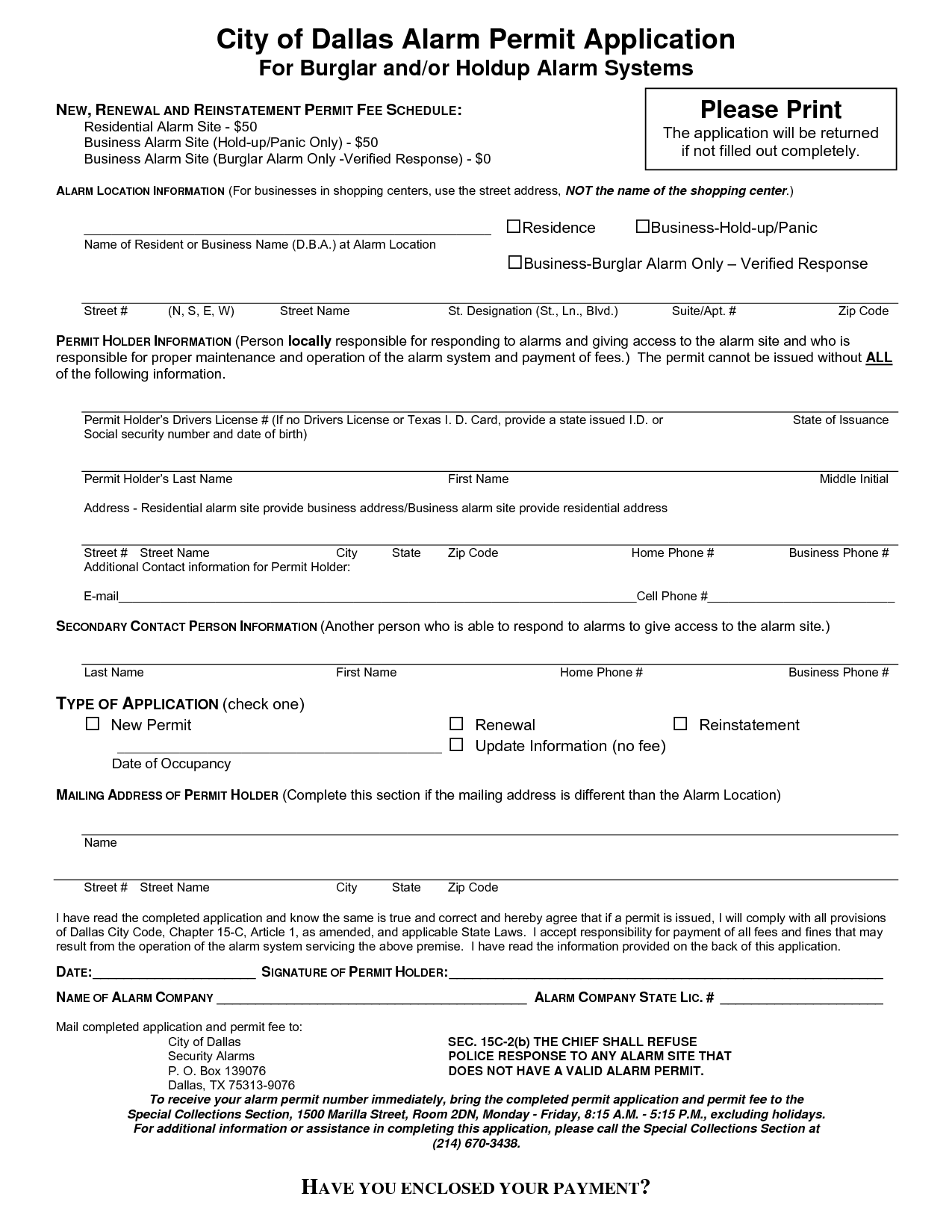
Lots of cities use the revenue collected for home security alarm system permits and false alarm fines to fund police department response to home alarms.
In fact, many police departments won’t respond to home alarms if no home security alarm system permit is on file with the city.
How do most of these alarm permit registration programs work? Here’s how it happens in most American cities:
· The authority having jurisdiction requires you to register your monitored home security alarm system with the local police department. There is an annual fee – usually $25 to $100 – which is payable by you, the alarm system user. Your home alarm security company should make you aware of all local requirements and should assist you in the registration process.
· Your local police department will provide you with a permit number. You share this number with your home alarm company so that, in the event of an alarm, the monitoring center can reference your permit number when dispatching the police. Keep in mind that many police departments will not respond to home alarms that don’t have a valid permit.
· By registering the home security alarm system with your local police, you are also agreeing to your jurisdiction’s false alarm fine structure. These fines vary by city and in most instances the fine amounts escalate with each occurrence. Make sure you clearly understand the rules in your community.
· Permits renew annually. In most cities, permits renew automatically and you get a bill from the jurisdiction to renew the permit each year.
Alarm system permits are a necessary part of most wireless home security systems. You can keep you alarm costs down by controlling false alarms. Here’s our list of ten ways you can prevent false alarms.
